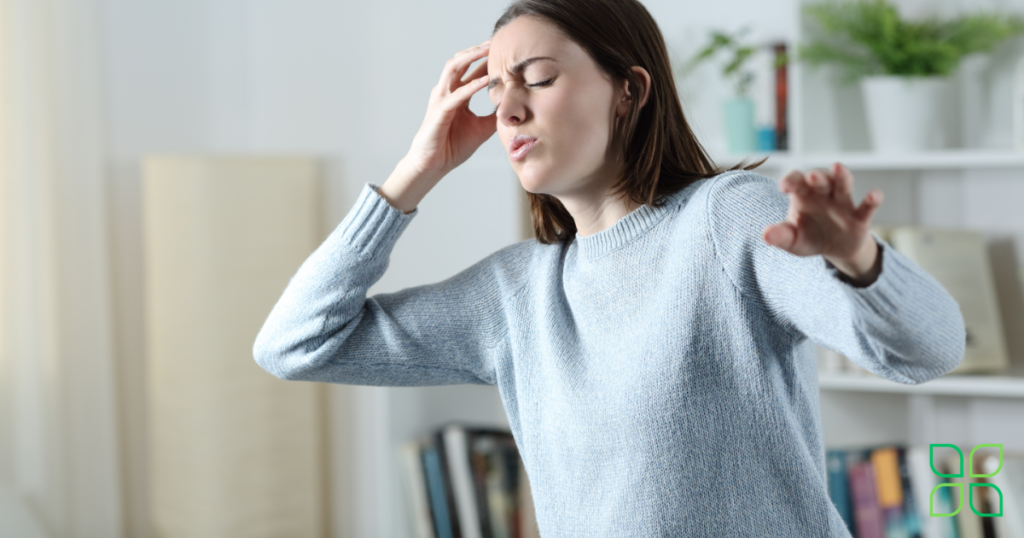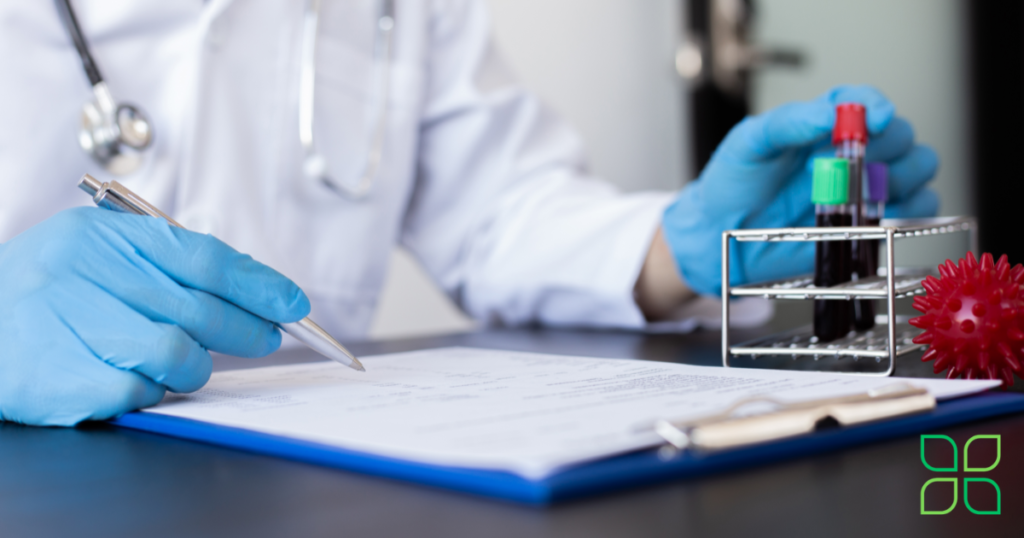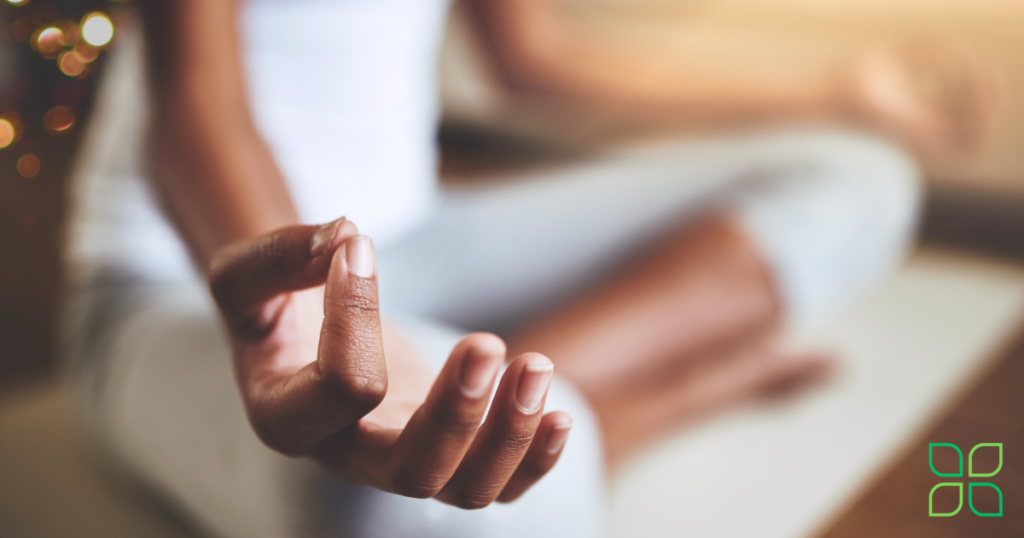Understanding Postural Orthostatic Tachycardia Syndrome: Causes, Symptoms, and Natural Management Approaches
Postural Orthostatic Tachycardia Syndrome (POTS) is a condition that affects millions just in the United States, particularly women and adolescents. It is often misdiagnosed as anxiety due to overlapping symptoms. In this blog post, we will explore POTS. We will discuss the causes, symptoms, effects, and natural approaches to managing this condition.
Causes of POTS:
A root cause of POTS is caused by dysregulation in the autonomic nervous system, which controls the body’s involuntary functions such as heart rate, blood pressure, and digestion. This dysregulation leads to a variety of symptoms, including orthostatic intolerance, which is the inability to tolerate standing or being in an upright position for extended periods of time.

One theory behind the development of Postural Tachycardia Syndrome (POTS) is that it may be triggered by a bacterial or viral infection. This could explain why some individuals develop POTS after a bout of illness. It is believed that viral illness causes an autoimmune response in the body, leading to inflammation and damage to the autonomic nervous system.
Recent research shows that POTS affects up to 50% of long COVID patients. The underlying cause of POTS in long COVID patients is the inflammatory response triggered by the COVID-19 infection. This inflammatory response leads to neuronal damage and dysregulation of the autonomic nervous system, which controls heart rate, blood pressure, and blood volume. Symptoms include heart palpitations, racing heart, chest pain, exercise fatigue, increased resting heart rate, and overall malaise.
Another possible cause of POTS is a genetic weakness. Some individuals may have inherited specific genes that make them more susceptible to developing dysautonomia or other autonomic disorders. Research is still ongoing in this area, but it is clear that genetics play a role in the development of POTS.
In addition, certain medical conditions are associated with the development of POTS. For example, individuals with Ehlers-Danlos syndrome, a genetic connective tissue disorder, are more likely to develop POTS. Other conditions, such as Lyme disease, diabetes, and autoimmune disorders, may also increase the risk of developing POTS.
Furthermore, there is evidence to suggest that hormonal imbalances, particularly in women, may contribute to the development of POTS. Fluctuations in estrogen and progesterone levels during the menstrual cycle, pregnancy, and menopause can affect the autonomic nervous system and potentially trigger POTS symptoms.
Overall, the exact cause of POTS remains unclear and likely involves a combination of genetic, environmental, and hormonal factors. More research is needed to fully understand the underlying mechanisms and develop targeted treatment options for individuals with this debilitating condition.
The Symptoms of POTS:
The symptoms of POTS are wide-ranging and can vary from person to person. However, there are some common signs to look out for. One of the most distinctive symptoms of POTS is a rapid heart rate upon standing up, also known as orthostatic tachycardia. This can cause dizziness, lightheadedness, and even fainting spells.

Another common symptom is low blood pressure, especially when standing up. This can lead to feelings of weakness, fatigue, and difficulty concentrating. Many POTS patients also experience symptoms such as headaches, chest pain, and shortness of breath.
People with POTS often have difficulty regulating their body temperature, which can result in excessive sweating or chills. Some individuals may also notice that their symptoms worsen after eating, which is known as postprandial hypotension. This can lead to feelings of nausea, stomach pain, and overall discomfort.
In addition to these physical symptoms, POTS can also have a significant impact on a person’s mental and emotional well-being. Many individuals with POTS struggle with anxiety, depression, and a decreased quality of life due to the chronic nature of their symptoms.
It’s important to note that while these symptoms are frequently seen in POTS patients, they can also be present in other medical conditions. Some similar symptoms, like chronic fatigue syndrome, can make for misdiagnosis; therefore, it is crucial to consult with a healthcare provider for an accurate diagnosis and tailored treatment plan.
The Effects of POTS:
Living with POTS, or Postural Orthostatic Tachycardia Syndrome, is no walk in the park. This invisible disability is often misunderstood and overlooked. Still, its impact on a person’s emotional and psychological well-being can be significant. Beyond the physical symptoms, those affected by POTS may find themselves facing a whole range of additional challenges, including depression, anxiety, guilt, and grief.
When you look at someone with POTS, you may not immediately realize the daily struggles they face. Their invisible disability doesn’t come with a physical marker or a noticeable sign, making it difficult for others to comprehend their experiences fully. This lack of understanding and awareness can contribute to feelings of isolation and frustration, often leading to emotional and psychological difficulties.
Depression frequently becomes a companion for those with POTS. Chronic pain, fatigue, and the constant battle against a dysfunctional autonomic nervous system can wear down even the strongest of individuals. The continuous cycle of dealing with symptoms, seeking medical help, and fighting for a diagnosis can take a toll on one’s mental well-being, leading to a sense of hopelessness and despair.

Anxiety often goes hand in hand with POTS, fueled by the unpredictable nature of the condition. The fear of fainting or experiencing debilitating symptoms in public can be overwhelming. Social situations, which were once enjoyable, may now be seen as anxiety-inducing triggers, leading to avoidance and feelings of isolation.
Guilt can also plague those living with POTS. The inability to maintain a normal daily routine or partake in any physical activity they once loved can generate a deep sense of guilt. It’s challenging for individuals with POTS to reconcile their aspirations and capabilities, often leading to feelings of inadequacy and guilt for not meeting societal expectations.
Finally, grief becomes a constant companion for those living with POTS. Grieving the loss of good health, independence, and a sense of normalcy can be a never-ending process. POTS often demands significant lifestyle adjustments, making it difficult for individuals to accept that life may never be the same again. The mourning of a life that once was can be a heavy burden.
For those battling POTS, it is crucial to recognize and address these emotional and psychological challenges alongside the physical symptoms. Seeking support from understanding healthcare professionals, therapists, support groups, and loved ones can help alleviate the burdens associated with this invisible disability.
Remember, behind the smiling faces and seemingly healthy exteriors, individuals with POTS may be silently coping with a multitude of emotional and psychological struggles. Let us foster empathy, education, and awareness so that we can provide the support and understanding they truly deserve.
Treatment for POTS:
Treatment of POTS may involve some physical therapy and various other approaches. Doctors may prescribe medications to improve blood volume, reduce heart rate, or improve blood vessel constriction, but from here, we will dive into natural treatments that you can do to try to get ahead of POTS.

Let’s start by emphasizing that every person’s experience with POTS is unique, and what works for one may not necessarily work for another. While we understand that POTS affects each individual differently, the good news is that these natural remedies may offer some relief and have been known to make a positive difference in managing this condition.
First and foremost, it’s crucial to establish a healthy lifestyle. Paying attention to our diet, maintaining proper hydration, and engaging in regular exercise can go a long way in managing POTS symptoms. A balanced diet rich in lean proteins, fruits, vegetables, and whole grains will provide our bodies with the necessary nutrients to function optimally. Additionally, staying well-hydrated is vital for regulating blood volume, which can help mitigate some POTS symptoms. However, it’s always a good idea to consult with a healthcare professional about the right kind and amount of exercise for your specific situation, especially considering POTS-related fatigue and physical limitations.
Furthermore, various relaxation techniques can help manage stress and promote overall well-being. Practices such as meditation, deep breathing exercises, and yoga have shown promising results in reducing POTS symptoms. These calming techniques can help regulate the autonomic nervous system, improving heart rate variability and blood pressure control. Incorporating a regular mindfulness practice into our daily routine may offer immense benefits in managing the challenges posed by POTS.

Natural Remedies for Managing POTS Symptoms
If you are dealing with Long COVID POTS, here are some natural approaches that can help alleviate symptoms and promote recovery. Here are some recommendations:
1. Herbal Support for Blood Volume:
Dandelion tea and nettle are two herbal remedies that can enhance blood fluid volume. Dandelion tea acts as a natural diuretic, promoting fluid balance. At the same time, nettle provides potassium and iron, supporting red blood cells and overall blood volume.
2. Herbal Support for Vasoconstriction:
Certain herbs, including yarrow, hawthorn, rosemary, and ginkgo, can support vasoconstriction, helping to balance the vasodilation seen in long COVID POTS. These herbs can be consumed as supplements or in the form of teas.
3. Electrolyte Enhancement:
Long COVID POTS patients often experience electrolyte imbalances. Adding trace minerals like potassium, magnesium, calcium, sodium, and chloride to your daily fluid intake can help restore electrolyte balance. Consuming sea salt in the morning can also aid in sodium rebalancing.
4. Compression garments:
Wearing compression stockings or socks can support blood flow and circulation, reducing the burden on the cardiovascular system and easing symptoms.
Remember, though these natural approaches have proven helpful for many individuals, consulting with a healthcare professional before making any significant changes to your lifestyle or treatment plan is essential. Each person’s experience with Long COVID POTS is unique, so finding the specific combination of strategies that work for you may require trial and error. Trust the process, be patient, and remember that healing takes time.
Nutritional Supplements for POTS
Here, we will explore several supplements known to alleviate the severity of POTS symptoms. Incorporating these nutrients into your diet has been shown to have an added benefit. However, it is important to note that consulting a medical professional is crucial before incorporating new supplements into your treatment plan.
1. Zinc:
Zinc is a trace element essential for healthy cell division and acts as an antioxidant in the body. It supports heart health, aids nutrient absorption and digestion, promotes muscle growth and repair, and helps balance hormones. Including zinc-rich foods or taking zinc supplements can provide these benefits.
2. Vitamin D:
Vitamin D, a fat-soluble vitamin, is essential for various bodily functions, including bone health, immune system enhancement, blood sugar regulation, and hormone regulation. While our bodies can produce vitamin D when exposed to sunlight, it is also important to obtain it through food or supplements. Vitamin D deficiency is common in individuals with chronic illnesses. It can lead to symptoms such as chronic pain, muscle weakness, fatigue, and respiratory issues.

3. Magnesium:
Magnesium is an essential mineral that plays a crucial role in over 300 enzyme reactions in the body. It is important for energy production, muscle function, and blood pressure regulation. Supplementing with magnesium can help relieve muscle aches, elevate mood, support a healthy immune system, and improve sleep quality.
4. Theanine:
Theanine, an amino acid primarily found in green tea, impacts brain nerve impulses and neurotransmitter release. It has a calming and sedative effect without causing drowsiness. Theanine is often used to reduce anxiety, hyperactivity, and sleep-related problems. It has also been found to reduce the severity of tremors caused by stress and calm the mind when upright for extended periods.
5. Alpha Lipoic Acid:
Alpha lipoic acid is an antioxidant that stabilizes free radicals, which can damage nerves and cause neuropathy. Studies have shown that alpha lipoic acid is effective in minimizing the pain and suffering associated with neuropathy. It is commonly used in Germany and other European countries for this purpose.
6. CoQ10, B Vitamins, and Carnitine:
Energy production is vital in managing any medical condition, including POTS. CoQ10, an antioxidant, is responsible for maintaining energy levels in the body. As we age, the production of CoQ10 decreases, leading to a gradual loss of energy. Supplementing with CoQ10 can help combat fatigue and ensure effective energy production. B vitamins, including thiamine, riboflavin, niacin, pantothenic acid, paradoxine, biotin, folic acid, and collatamine, are essential for cellular metabolism and energy production. Since B vitamins are water-soluble and not stored in large amounts, it is important to replenish them regularly through a balanced diet or supplements. Carnitine, found in protein-rich foods, helps transport fatty acids into the mitochondria for energy production. Supplementing with carnitine can benefit energy levels in individuals with POTS.
7. Licorice Root:
Licorice root is considered one of the best supplements for POTS. It helps increase blood volume by causing the kidneys to retain water, often a common issue for individuals with POTS. Additionally, licorice root aids in decreasing adrenal fatigue and acts as an anti-spasmodic, relieving abdominal and muscle cramps. It also possesses antiviral properties, assisting the body in fighting off infections.
Conclusion:

Living with pots symptoms is undoubtedly challenging, as they can significantly impact a person’s ability to engage in the activities they once enjoyed. However, it is essential to remember that there is hope. With proper medical management, support from loved ones, and self-care strategies, individuals can find ways to navigate and adapt to their new reality, allowing them to reclaim some of the joy and fulfillment they once experienced.
Has any of these remedies helped you with POTS?
Read more about Postural Orthostatic Tachycardia Syndrome
At-Home Treatments for Postural Orthostatic Tachycardia Syndrome (POTS)
